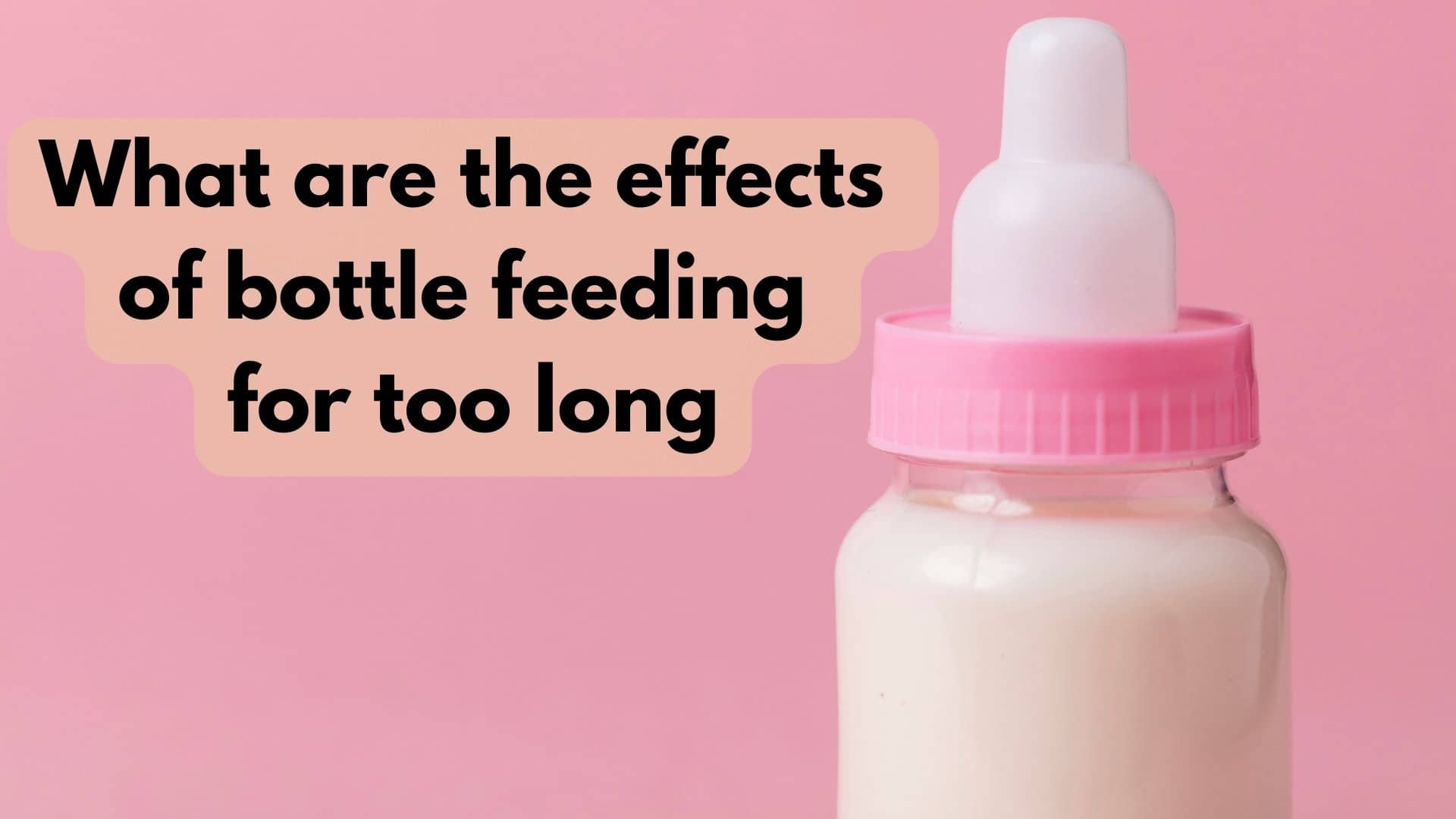Curious about the long-term effects of bottle feeding on a child’s health? This article will provide you with valuable insights on this topic. We’ll explore the potential impacts of bottle feeding, answer frequently asked questions, and even offer some conclusions based on relevant research.
So, if you’re interested in understanding how prolonged bottle feeding can affect your little one’s well-being, keep reading!
What are the long-term effects of bottle feeding on a child’s health?
Bottle feeding is a common practice that many parents choose for their infants. While it may seem convenient, it is important to consider the long-term effects that bottle feeding can have on a child’s health. In this article, we will explore the various ways in which bottle feeding can impact a child’s overall well-being, from nutritional deficiencies to emotional bonding.
Nutritional Deficiencies:
One of the primary concerns with bottle feeding is the potential for nutritional deficiencies. Breast milk is uniquely tailored to meet the needs of a growing baby, providing a perfect balance of nutrients and antibodies. However, formula milk can sometimes fall short in terms of providing certain nutrients. For example, breast milk contains antibodies that help protect against infections, while formula milk lacks this advantage. This can leave bottle-fed children more susceptible to illnesses and infections.

Increased Risk of Obesity:
Studies have shown that prolonged bottle feeding can increase the risk of obesity in children. Bottle-fed babies tend to consume more milk than breastfed infants, as it is easier to overfeed with a bottle. This excessive calorie intake can lead to weight gain and an increased likelihood of developing obesity later in life. It is important for parents to monitor their child’s bottle feeding habits and encourage healthy eating habits as they grow.
Dental Problems:
Bottle feeding, especially when done for extended periods, can contribute to dental problems in children. When babies fall asleep with a bottle in their mouth, the milk or formula can pool around their teeth, increasing the risk of tooth decay and cavities. Additionally, the constant sucking motion required during bottle feeding can affect the alignment of the teeth and the development of the jaw, resulting in orthodontic issues in the future.
Weakened Immune System:
Breast milk contains valuable antibodies and immune-boosting substances that help protect infants from infections and illness. Conversely, formula milk lacks these immune-boosting properties. As a result, bottle-fed babies may have a weaker immune system and be more susceptible to infections, allergies, and respiratory illnesses. This highlights the importance of breastfeeding or considering alternative feeding methods to support a child’s immune system.
Digestive Issues:
Another long-term effect of bottle feeding on a child’s health is the potential for digestive problems. Breast milk is easily digestible and gentle on a baby’s stomach, whereas formula milk may be harder to digest. This can lead to issues such as constipation, excessive gas, and colic. It is important for parents to be mindful of their child’s digestive health and consult with a healthcare professional if any concerns arise.
Difficulty Self-Regulating Hunger and Fullness:
Breastfeeding allows babies to naturally regulate their hunger and fullness cues, as they have control over the flow of milk. In contrast, bottle feeding can interfere with this natural self-regulation. The consistent flow of milk from a bottle can lead to overfeeding or feeding for comfort rather than hunger. This can result in difficulties in later years when the child needs to develop a healthy relationship with food and self-regulate their appetite.
Also Check: 10 Engaging Spring Sensory Activities for Toddlers
Inadequate Development of Oral Skills:
The act of breastfeeding involves a complex interplay between the baby’s mouth, tongue, and facial muscles, promoting the development of important oral skills. Bottle feeding, while providing nourishment, may not offer the same level of stimulation and development for these muscles. This can potentially lead to delays in speech development, fine motor skills, and oral coordination.

Source: TheTechBrain AI
Impact on Cognitive Development:
Breast milk is rich in essential fatty acids and nutrients that are crucial for brain development. Research suggests that breastfed babies may have a cognitive advantage over those who are bottle-fed. While formula milk is designed to provide necessary nutrients, studies have shown a correlation between breastfeeding and higher IQ scores. It is crucial to consider the potential impact of bottle feeding on a child’s cognitive development.
Reduced Bonding and Emotional Connection:
Breastfeeding establishes a deep emotional bond between a mother and her child. The close physical contact, skin-to-skin contact, and eye contact during breastfeeding create a nurturing and intimate connection. Bottle feeding, while still providing nourishment, may not offer the same level of bonding. This can have long-lasting effects on the emotional well-being of both the child and the parent.
Conclusion:
While bottle feeding may seem like a convenient option for parents, it is essential to understand and consider the potential long-term effects of this feeding method. From nutritional deficiencies to cognitive development and emotional bonding, bottle feeding can have significant implications for a child’s overall health and well-being. It is important to make informed decisions about feeding methods and seek support from healthcare professionals to ensure the best possible start in life for your child.
